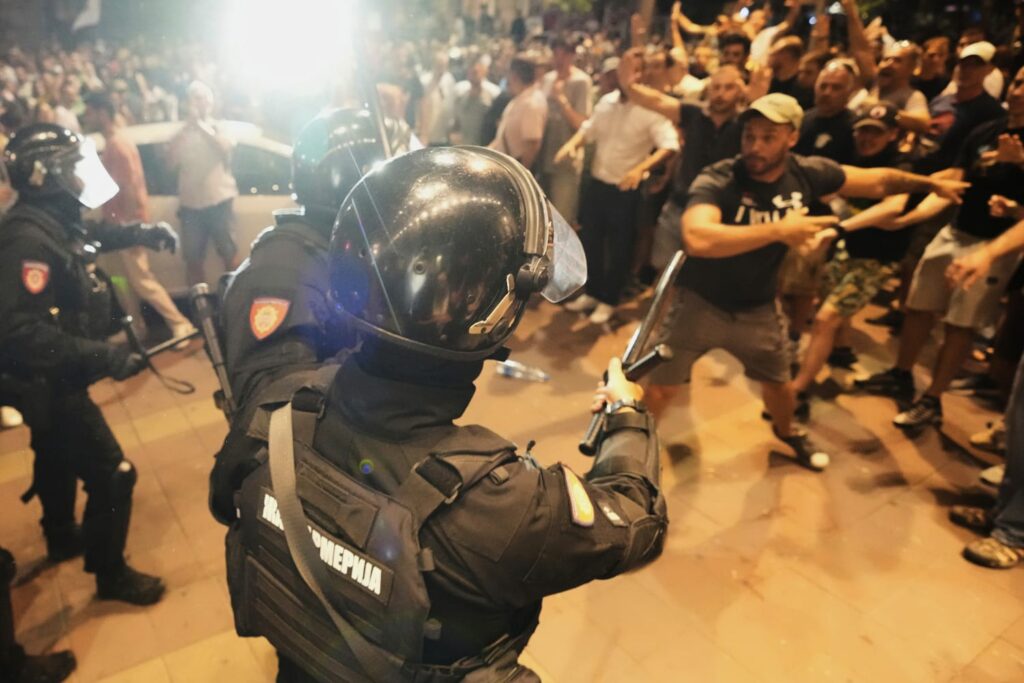Serbia has been plunged into its fifth consecutive night of unrest, as protests against President Aleksandar Vučić’s government escalated with the torching of ruling party offices and violent clashes with police.
On Saturday night, demonstrators targeted the offices of the Serbian Progressive Party (SNS) in Valjevo, setting the premises on fire. Riot police responded with tear gas and stun grenades after a group of masked protesters attacked the empty building. Similar scenes played out in Belgrade and Novi Sad, where allegations of excessive police force and brutality surfaced. Serbia’s interior ministry has denied the accusations.
The wave of protests began in November, following the collapse of the Novi Sad railway station roof, which killed 16 people. The tragedy quickly became a symbol of corruption and government negligence, sparking public outrage. While the demonstrations initially remained peaceful, tensions flared last week when pro-government loyalists staged counter-rallies, leading to street confrontations.
Calls for early elections and an end to Vučić’s 12-year rule have since dominated the movement. Protesters have also vandalized SNS offices and smashed windows of the Serbian Radical Party headquarters, a coalition ally of the ruling bloc.
Human rights groups and international bodies have raised alarm over the state’s response. Michael O’Flaherty, Commissioner for Human Rights at the Council of Europe, urged Belgrade to curb “disproportionate force” and halt arbitrary arrests. Unverified videos circulating on social media show police officers beating demonstrators in Valjevo.
President Vučić, however, remains defiant. In a statement posted on Instagram, he condemned the violence as an “expression of weakness” and vowed to punish those responsible. He has dismissed demands for early elections, describing the unrest as a foreign-orchestrated attempt to destabilize Serbia.
Moscow has rallied behind Vučić, pledging support for its ally. Russia’s Foreign Ministry warned it “cannot remain unresponsive to what is happening in brotherly Serbia,” while defending police tactics as necessary to preserve order and security.
As demonstrations continue to swell, Serbia faces its gravest political crisis in years. What began as anger over a tragic accident has evolved into a nationwide challenge to Vučić’s hold on power, with no signs of easing.

